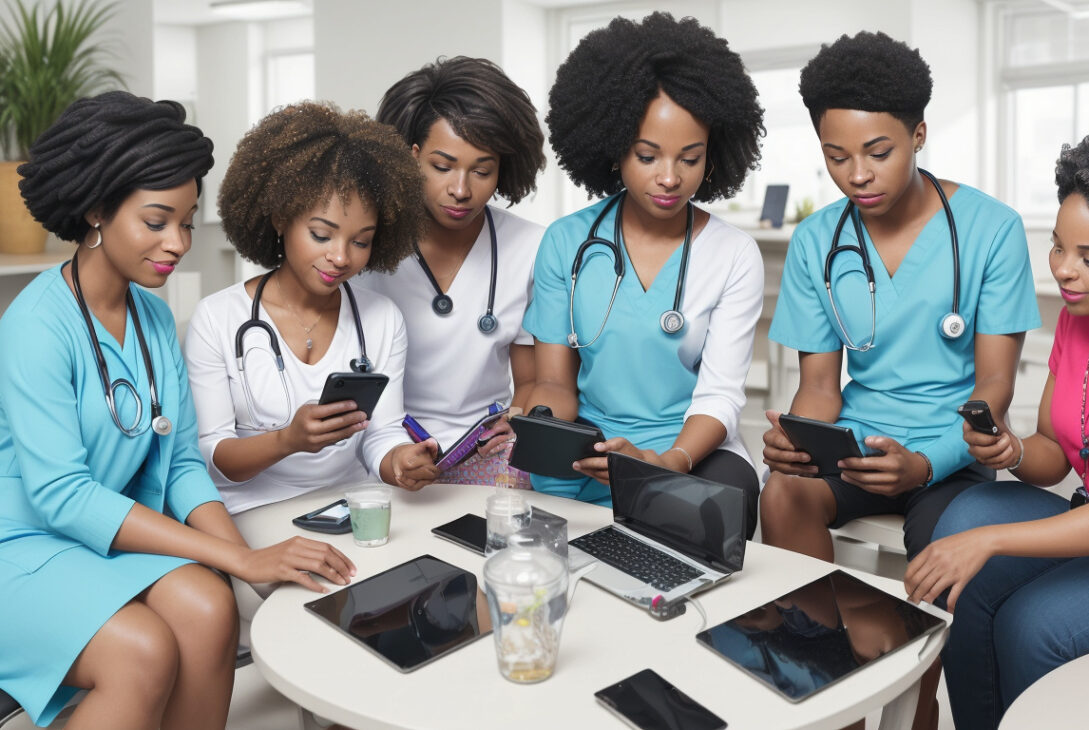Better Access to Technology Can Help African Americans Bridge the Healthcare Gap
By Sonia Fernandez, UCSB | August 9, 2025
Researchers at the University of California, Santa Barbara (UCSB) have found that enhancing access to technology represents a promising path to reducing longstanding healthcare disparities experienced by African Americans in the United States. The study, led by Sharon Tettegah and Ebenezer Larnyo from UCSB’s Center for Black Studies Research (CBSR), highlights how improving connectivity and digital health tools can improve healthcare access, quality, and equity.
The Persistent Healthcare Disparities
Despite medical advances, African Americans continue to face disproportionate challenges in accessing quality healthcare and suffer worse health outcomes compared to their white counterparts. Sharon Tettegah, director of CBSR and an expert at the intersection of social science and STEM, recalls the example of tennis legend Venus Williams, who struggled with severe pelvic pain caused by uterine fibroids—a condition that disproportionately affects African American women. Williams faced dismissal from multiple healthcare providers who failed to connect her symptoms to her condition adequately. It was only after persistent advocacy and finding a supportive medical team that she received the appropriate care.
“This kind of dismissal is unfortunately common for African Americans due to systemic racism and historical patterns of exclusion in the healthcare system,” Tettegah explained. “Not every patient has the ability or resources to advocate for themselves, which compounds the problem.”
The Role of Technology in Closing the Gap
The study, published in the journal Frontiers in Public Health, underscores how access to broader digital tools—such as reliable broadband internet, smartphones, telehealth services, and health-related social media platforms—can bridge critical gaps. Ebenezer Larnyo, the lead author, noted, “Our research shows that expanding technology access for African Americans not only enhances healthcare quality but also reduces disparities.”
However, socioeconomic status plays a significant role. Individuals with higher incomes are more likely to have technology access and, accordingly, experience fewer healthcare disparities. This inequality means that technology both reflects and reinforces existing structural inequities.
“We must address not just technology barriers but also the broader systemic issues that limit economic opportunities and digital inclusion,” Larnyo emphasized. “Evidence and hard data help us move beyond assumptions and identify the specific structural changes needed instead of placing responsibility solely on individuals.”
The Study’s Key Findings
The research team analyzed survey data from 815 African American respondents regarding their technology access, health information usage, and health behaviors. The results revealed:
- A strong positive link between socioeconomic status and technology access: wealthier individuals had notably better access to digital tools.
- A positive correlation between technology access and the use of health technologies like telemedicine and health apps.
- An inverse relationship between technology access and healthcare disparities, indicating that limited technology access exacerbates health inequities.
These findings suggest that tackling both economic disparities and technology availability is essential to improving health outcomes within African American communities.
Practical Solutions and Future Directions
Among the most impactful interventions identified are efforts to ensure affordable, accessible, and reliable broadband internet, alongside widespread availability of affordable smartphones. Beyond connectivity, the researchers advocate for culturally tailored healthcare technologies, including easy-to-use mental health apps and telehealth platforms that recognize and address the specific needs and lived experiences of African Americans.
Tettegah stressed the importance of raising awareness in healthcare communities to understand and validate the diverse health experiences of people of color: “We need to build a narrative backed by advocacy and accurate information so that varying disease risks and healthcare needs are clearly recognized, not dismissed.”
Conclusion
Bridging the digital divide is crucial not just for convenience but as a fundamental component in addressing entrenched healthcare inequities. As UCSB’s research shows, better technology access coupled with structural changes has the potential to transform how African Americans receive healthcare, paving the way for greater equity in health outcomes.
For further reading, the full research paper is available in Frontiers in Public Health.
Stay informed by subscribing to UCSBTheCurrent for local and national health news.










